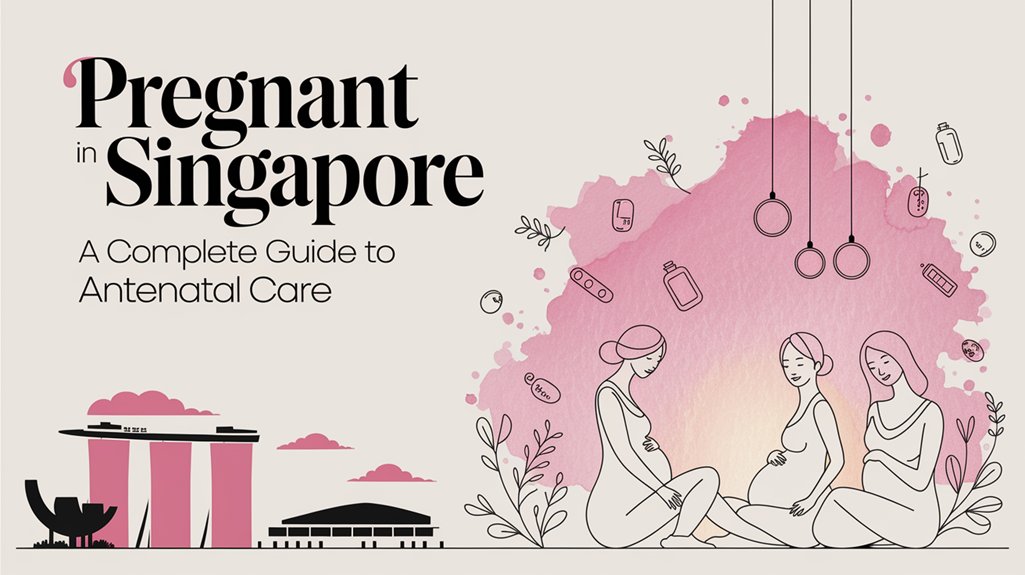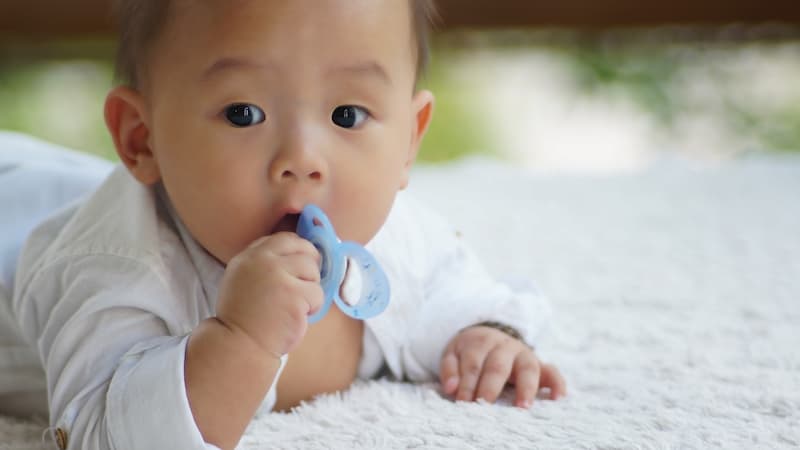Becoming pregnant in Singapore means having access to world-class healthcare and comprehensive support systems throughout your pregnancy journey. With one of the lowest maternal mortality rates globally (7 deaths per 100,000 live births), Singapore ranks 8th in the UN Human Development Report’s Gender Inequality Index and is the best place in Asia to be a mother according to Save the Children’s annual report. This guide covers everything you need to know about managing your health, understanding medical tests, and preparing for your baby’s arrival within Singapore’s healthcare framework. Whether you’re in your first trimester or approaching your due date, this information will help you navigate pregnancy with confidence and knowledge. Ensuring maternal health and maintaining good dietary habits are crucial for the baby’s health during pregnancy.
Understanding Antenatal Care in Singapore
Antenatal care refers to the healthcare you receive from medical professionals during pregnancy. In Singapore, this typically involves 8-10 clinic visits for women with a healthy, uncomplicated pregnancy. These appointments monitor both your health and your baby’s development.
During these visits, healthcare providers check your blood pressure and collect urine specimens to screen for potential health concerns. In the first 28 weeks, appointments generally occur monthly, becoming more frequent as your pregnancy progresses. By the final month, weekly check-ups help ensure everything remains on track for delivery.
Singapore offers antenatal care through both public and private healthcare facilities:
Public hospitals like KK Women’s and Children’s Hospital (KKH), Singapore General Hospital (SGH), and National University Hospital (NUH) provide subsidized care with costs varying by ward type. At KK Women’s and Children’s Hospital, expectant mothers can receive comprehensive guidance during each trimester of pregnancy. For uncomplicated vaginal deliveries, Ward B2/C (subsidized) charges range from S$1,076–S$2,691, while Ward A/B1 (unsubsidized) costs S$3,516–S$7,430.
Private hospitals such as Mount Elizabeth, Gleneagles, Thomson Medical Centre, and Mount Alvernia offer personalized care at premium prices, with vaginal deliveries in private rooms costing S$7,793–S$15,242.
The MediSave Maternity Package (MMP) helps offset expenses, allowing claims of up to S$900 for prenatal care and S$750–S$2,600 for delivery, depending on procedure type. This makes both options more accessible based on your preferences and budget.
Pregnancy Trimester Guide
First Trimester (Weeks 1-12)
The first trimester marks the beginning of your baby’s development, with major organs forming during this critical period. Common experiences include morning sickness, fatigue, breast tenderness, and frequent urination.
Your initial appointments will include blood tests to check your blood group, screen for infections, and assess your overall health. Folic acid supplements are particularly important during this stage to support the development of the baby’s nervous system and reduce the risk of brain and spinal cord defects.
Singapore’s hot, humid climate can intensify pregnancy discomfort during this period. Stay indoors during peak heat hours (11am-3pm), wear light, breathable clothing, and use air conditioning when possible to manage heat sensitivity.
Second Trimester (Weeks 13-26)
Many women find the second trimester more comfortable as morning sickness often subsides. Your baby’s movements become noticeable, and ultrasounds during this period can reveal your baby’s gender if you wish to know.
Healthcare providers monitor your blood pressure carefully during this time, as elevated readings might indicate developing complications. Weight gain becomes more apparent, and you may experience new symptoms like leg cramps or back pain.
This is an ideal time to begin planning for confinement, a culturally significant practice in Singapore. Traditional confinement periods last 30-40 days after birth, during which mothers follow specific dietary and lifestyle practices to aid recovery. Consider interviewing confinement nannies early, as experienced ones are often booked months in advance, with costs ranging from S$3,000-S$4,000 for a full month.
Third Trimester (Weeks 27-40)
The final stretch of pregnancy focuses on preparing for birth. Your baby continues to grow rapidly, putting pressure on your organs and potentially causing discomfort. Symptoms might include heartburn, water retention, and difficulty sleeping.
Weekly appointments in the last month allow doctors to monitor your baby’s position, check for signs of labor, and address any concerns. This is also when you’ll discuss your birth plan and pack your hospital bag.
Familiarize yourself with Singapore’s maternity leave policies: 16 weeks of government-paid maternity leave for working mothers of Singaporean children (8 weeks for non-Singaporean children), and 2 weeks of paternity leave. From April 2025, Singapore will implement enhanced parental leave policies, including mandatory four-week paternity leave and a new Shared Parental Leave scheme.
Common Pregnancy Symptoms and Management, Including Morning Sickness
Physical changes during pregnancy vary widely among women, but certain symptoms are typical:
Morning sickness: Despite its name, nausea can occur at any time of day. Small, frequent meals and staying hydrated can help manage this symptom. Many Singapore mothers find relief with local remedies like sipping barley water or ginger tea.
Fatigue: Rest when possible and maintain a balanced diet to support your energy levels. Singapore’s humidity can worsen fatigue, so plan indoor activities during the hottest parts of the day.
Back pain: Proper posture, prenatal exercises, and avoiding prolonged standing can reduce discomfort. Singapore offers numerous prenatal yoga and swimming classes specifically designed for pregnant women.
Frequent urination: While inconvenient, this normal symptom helps your body eliminate waste efficiently.
Hot flushes: These result from changing hormone levels and are particularly common at night. In Singapore’s climate, lightweight, breathable sleepwear is essential.
Leg cramps: Staying hydrated and gentle stretching before bed may provide relief.
Urinary tract infection: This can cause discomfort during urination and may be a pregnancy complication. Symptoms include a burning sensation when urinating. It is important to consult a doctor if these symptoms occur to maintain comfort and health during pregnancy.
For maternity clothing, Singapore offers numerous options from affordable basics at H&M Maternity and UNIQLO to specialty stores like Mothers En Vogue and Maternity Exchange. Many Singapore mothers also explore Traditional Chinese Medicine (TCM) options like acupuncture for pregnancy discomforts, available at clinics such as Eu Yan Sang and Thomson Chinese Medicine.
Consult your doctor if you experience vaginal bleeding, severe abdominal pain, decreased fetal movements, or a sudden gush of fluid, as these may indicate complications requiring immediate attention.
Essential Health Checks and Tests
Throughout your pregnancy in Singapore, you’ll undergo various tests to monitor your health and your baby’s development:
Blood tests: These screen for infections, check your blood group, and assess your overall health. Basic blood tests are covered under the MediSave Maternity Package.
Ultrasound scans: These provide images of your baby, confirm your due date, and check for developmental issues. Expect at least two major scans (S$200-350 each), with additional scans for high-risk pregnancies.
Glucose testing: This screens for gestational diabetes, typically performed between weeks 24-28. Singapore has higher-than-average gestational diabetes rates due to genetic factors.
Blood pressure monitoring: Regular checks help detect potential complications like pre-eclampsia.
Urine tests: These identify infections or proteins that might indicate health concerns.
Singapore also offers Non-Invasive Prenatal Testing (NIPT) like the Harmony test (S$1,300-1,600), which screens for chromosomal abnormalities with 99% accuracy. While this test is optional, many Singapore doctors recommend it, especially for mothers over 35.
While these tests are highly informative, remember that no test is 100% accurate. Your healthcare provider will explain the purpose and results of each test during your appointments.
Physical Changes During Pregnancy
Pregnancy brings a myriad of physical changes that can be both exciting and challenging. Understanding these changes can help pregnant women navigate this transformative period with greater ease and confidence.
Weight Gain: A healthy weight gain of 10-12 kg throughout the entire pregnancy is typical. However, it’s important to monitor weight gain to avoid pregnancy complications. Excessive weight gain can lead to issues such as gestational diabetes and high blood pressure.
Breast Changes: Hormonal fluctuations can cause breast tenderness, swelling, and darkening of the nipples. These changes are your body’s way of preparing for milk production.
Abdominal Expansion: As your uterus expands, the abdominal wall and ligaments stretch, which can lead to discomfort and back pain. Gentle prenatal exercises can help alleviate some of this discomfort.
Posture Changes: The growing belly shifts your center of gravity, often leading to changes in posture and potential back pain. Maintaining good posture and using supportive footwear can help manage these changes.
Skin Changes: Hormonal changes can cause skin issues such as stretch marks, darkening of the skin, and acne. Keeping your skin moisturized and using gentle skincare products can help manage these changes.
Hair and Nail Changes: Some women may notice changes in hair and nail texture and growth during pregnancy. These changes are usually temporary and will normalize postpartum.
Foot and Ankle Swelling: Fluid retention and the pressure from your growing womb can cause swelling in the feet and ankles. Elevating your feet and staying hydrated can help reduce swelling.
Understanding these physical changes and knowing how to manage them can make your pregnancy journey more comfortable and enjoyable.
Safety Precautions During Pregnancy
Ensuring a safe and healthy pregnancy involves taking several important precautions. Here are some essential safety tips for pregnant women to consider:
Avoid Heavy Lifting: Heavy lifting can cause injury to both the mother and the baby. Always ask for help with heavy objects to avoid unnecessary strain.
Wear Comfortable Shoes: Opt for flat and low-heeled shoes to prevent falls and tripping, especially as your center of gravity shifts.
Avoid Exposure to Toxins: Steer clear of toxins such as lead-based paint and take necessary precautions when handling chemicals. These substances can be harmful to your baby’s health.
Practice Good Hygiene: Regular hand washing and good hygiene practices are crucial to prevent infections, which can be more serious during pregnancy.
Avoid Smoking and Secondhand Smoke: Smoking and exposure to secondhand smoke can harm your baby and increase the risk of pregnancy complications such as low birth weight and preterm delivery.
Limit Caffeine Intake: High caffeine intake is linked to an increased risk of miscarriage, preterm delivery, and low birth weight. Limit your caffeine consumption to two cups of coffee per day.
Avoid Raw or Undercooked Foods: To prevent foodborne illnesses, avoid consuming raw or undercooked foods such as raw meat, eggs, and fish.
Stay Hydrated: Drinking plenty of water is essential to prevent dehydration and urinary tract infections. Aim for at least 2 liters of fluid daily.
Get Regular Check-Ups: Regular prenatal check-ups are crucial for monitoring your baby’s health and detecting any potential issues early on.
Be Aware of Pregnancy Complications: Stay informed about potential pregnancy complications such as gestational diabetes, high blood pressure, and vaginal bleeding. Seek medical attention if you experience any concerning symptoms.
By following these safety precautions, you can help ensure a healthy and smooth pregnancy journey for both you and your baby.
Nutrition and Lifestyle for Pregnant Women
A balanced diet supports both your health and your baby’s development. Contrary to the saying “eating for two,” most women don’t need extra calories until the last three months of pregnancy, when approximately 200 additional calories per day are sufficient.
Focus on consuming:
Fresh fruits and vegetables, readily available at Singapore’s wet markets and supermarkets
Whole grains
Lean proteins
Dairy products or calcium-fortified alternatives
Foods rich in iron and folate
Singapore’s local foods offer excellent nutrition during pregnancy. Fish soup provides omega-3 fatty acids, while dishes with leafy greens like kai lan and spinach deliver folate and iron. Papaya fish soup, a traditional confinement food, is rich in calcium and protein.
Stay hydrated by drinking at least 2 liters of fluid daily to manage water retention and support your expanding blood volume. Singapore’s humidity makes proper hydration even more crucial.
Safe physical activities like swimming and walking can help combat back pain, improve circulation, and maintain your fitness level. Singapore offers pregnancy-specific exercise programs at facilities like COMO Shambhala, Active Birth Centre, and various community centers. Always listen to your body and avoid activities with high impact or fall risks.
Avoid:
Alcohol consumption
Smoking
Excessive caffeine (limit to two cups of coffee per day)
Raw or undercooked meats
Unpasteurized dairy products
High-mercury fish
When traveling, a pregnant woman should consider health and safety precautions. Airport security screenings are generally safe, but it’s advisable to inform the staff about your pregnancy. Plan your travel timing to avoid complications, and always wear a seat belt correctly to protect both you and your unborn child. Stay hydrated, take frequent breaks to walk around, and consult your healthcare provider for personalized advice.
Recognizing Pregnancy Complications
While most pregnancies progress without major issues, knowing potential warning signs helps you seek timely medical care:
Pre-eclampsia: This condition affects approximately one in 10 pregnancies and is characterized by high blood pressure, protein in urine, headaches, dizziness, and pain in the upper abdomen. Regular monitoring during antenatal visits helps detect this condition early.
Gestational diabetes: This temporary form of diabetes develops during pregnancy and requires careful blood sugar management through diet and sometimes medication. Singapore has specialized gestational diabetes clinics at major hospitals.
Vaginal bleeding: Any bleeding during pregnancy warrants medical attention, as it could indicate various conditions from minor irritation to more serious concerns.
Decreased fetal movements: If you notice your baby moving less than usual, contact your healthcare provider promptly.
Urinary tract infections: These are more common during pregnancy and require treatment to prevent complications.
For emergency situations, call 995 for an ambulance or head to the 24-hour emergency departments at KKH, SGH, or NUH. Singapore’s high-risk pregnancy care is centered at KKH and NUH, which have specialized maternal-fetal medicine departments.
Patient support groups like the Pregnancy and Infant Loss Support Group at KKH provide emotional assistance for those experiencing pregnancy complications.
Preparing for Childbirth in Singapore
As your due date approaches, familiarize yourself with your chosen hospital’s facilities and procedures. Singapore offers excellent birthing options at both public and private hospitals.
Beyond standard delivery options, Singapore hospitals offer various childbirth approaches:
Water birth facilities are available at NUH and Thomson Medical Centre
Hypnobirthing classes are offered at Mount Alvernia and Active Birth Centre
Natural birth without epidurals is supported with midwife-led care at most hospitals
Typical costs for different delivery options range widely:
Natural vaginal birth: S$1,500-8,000 depending on ward type and facility
C-section: S$8,400-15,000
Water birth: Additional S$500-800 for pool rental
Doula services (S$1,200-2,500) provide continuous physical and emotional support during labor, while midwifery services operate primarily within hospital settings in Singapore.
Pack your hospital bag by 36 weeks, including:
Personal care items
Comfortable clothing
Baby’s first outfit
Important documents like your ID and hospital notes
Singapore hospital registration forms, if provided in advance
Consider attending antenatal education classes, which are widely available across Singapore. These classes cover labor techniques, pain relief options, and basics of newborn care. KKH, NUH, and most private hospitals offer comprehensive programs ranging from S$160-400.
Postpartum Care and Breastfeeding
After delivery, your body begins its recovery process. Expect some discomfort as your body adjusts, and give yourself time to heal.
Singapore’s unique confinement practices blend traditional Chinese, Malay, and Indian customs to support maternal recovery. Confinement nannies help with newborn care and prepare special meals designed to restore balance and energy. Confinement food delivery services (S$20-30 per day) are also popular alternatives for those without full-time help.
Breast milk contains all necessary nutrients and antibodies to protect your newborn. Many Singapore hospitals provide breastfeeding support through lactation consultants and classes to help you establish successful feeding. Organizations like the Breastfeeding Mothers’ Support Group Singapore offer community resources and regular meet-ups.
For additional support, lactation consultants are available at most hospitals or privately (S$150-200 per session). The Singapore Lactation Consultants Association maintains a directory of certified professionals.
Be mindful of emotional changes during the postpartum period. Mood swings are common due to hormonal fluctuations, but persistent feelings of sadness may indicate postpartum depression, which requires professional support. KKH’s Women’s Mental Wellness Service and counseling services at Singapore Association for Mental Health provide specialized care.
Starting Your New Family Chapter
Pregnancy marks the beginning of your parenting journey. After birth, you’ll need to register your baby within 14 days at the hospital or within 42 days at the Immigration and Checkpoints Authority (ICA) Building. Singapore offers a comprehensive childhood vaccination program beginning at birth with the BCG and Hepatitis B vaccines.
For pediatric care, Singapore’s polyclinics provide subsidized services, while private pediatricians offer more personalized attention. The new mother-child dyad service delivery model at 19 polyclinics streamlines postnatal care by providing vaccination and postnatal depression screening during the same visit.
In Singapore, you’ll find comprehensive support systems from healthcare to community resources designed to help you through pregnancy and beyond. By staying informed, attending regular check-ups, and maintaining healthy habits, you’re giving yourself and your baby the best possible start in one of the world’s leading countries for maternal healthcare.








